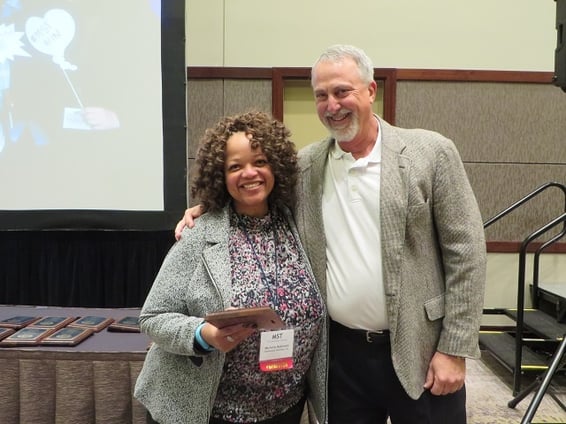Lessons learned from other MST teams and an experienced expert to meet the challenges of working in the inner city
Two years ago, CSI's (Community Solutions Inc.) New Jersey Multisystemic Therapy (MST) teams were struggling. Retaining staff and achieving positive outcomes for families was proving to be very difficult. Everyone was invested—they were just unsure if MST could work in their neighborhoods. The communities were experiencing high levels of violence, and families were increasingly losing hope. The program manager of the New Jersey teams wasn’t sure if MST alone was a viable treatment option given everything that was happening in the area. The program leadership wondered whether therapists would be safe when they went to see families. Could they successfully engage people who had strong distrust of professionals? Could they help families rearrange their ecologies so that young people did not get rearrested during the course of MST? Could they work to get young people back to school?

Michelle Robinson receiving her WIT award at the 2017 International Conference pictured alongside Scott Henggeler
The tide began to change
After Michelle Robinson took on the expert role of the teams, the tide began to turn. She prioritized helping the newly hired clinical supervisor, with the support of the program manager and area director, stay in the position and change the morale of the team. She got them to think about how team members could develop a shared ownership of this program, supporting one another to address safety and chronic engagement concerns. While it was certainly true that neighborhoods were experiencing a time of heightened violence, caregivers still wanted the very best for their children, and therapists could still inspire hope across those systems.
As part of this growing process, Michelle had to tease out fact from myth so that everyone could shift their perception of the neighborhoods where they were providing service. This meant recognizing that community resources existed, including, but not limited to, community police and the families themselves. As the engagement with families improved, they actually protected therapists in their communities.
The MST world community helped out, as well. Our fellow MST teams in Chile provided sample safety plans used in neighborhoods experiencing similar problems. No sense in reinventing the wheel when something works.
As the teams went to work with a renewed sense of purpose, the therapists’ morale changed. The program manager expressed renewed hope. The supervisor and therapists stayed committed to the MST model, developing family and systems level goals that could be achieved. Stakeholders committed to supporting the teams so that young people could stay safely at home, in school and the community.
Positive impact
There is no question that Michelle’s work as the team expert made a huge impact. The supervisor stayed in the position and the team felt well supported and can see opportunities for growth. The program manager is able to support stakeholder relationships and provide strong administrative leadership. Best of all, outcomes for families improved. In 2016, more than 90 percent of young people were living at home, 88 percent were attending school at the time of discharge, and 83 percent had no new arrest during the course of MST treatment. The teams are demonstrating adherence to the MST model with a Therapist Adherence Measure (TAM-R) score above the MST threshold of .61.
Congratulations to Michelle
The expert role in MST is a critical one. The job the expert has is to ensure fidelity or adherence to the MST model across teams and programs. By the very nature of the title “MST expert,” one would expect every MST expert would be a “Whatever It Takes” (WIT) kind of professional— and no doubt that is true.
How hard then must it be to be nominated for the WIT Award and then how much harder must it be for the committee to select a winner in this category.
But that is exactly what Michelle Robinson successfully achieved this year as expert. During the 2017 International Conference, Michelle was awarded the Whatever It Takes Award in the expert category. Michelle’s dedication to her role as MST expert reaches far and wide through her teams in New Jersey and Georgia. As she moves on from CSI to work as an expert for MST Services, we are confident that the changes she helped create in our team will be long lasting and sustainable
If you know someone who has demonstrated an outstanding contribution to the MST community, please nominate that person for the MST Whatever It Takes Award here.
Sherry Albert is the Chief Operating Officer at Community Solutions, Inc.


